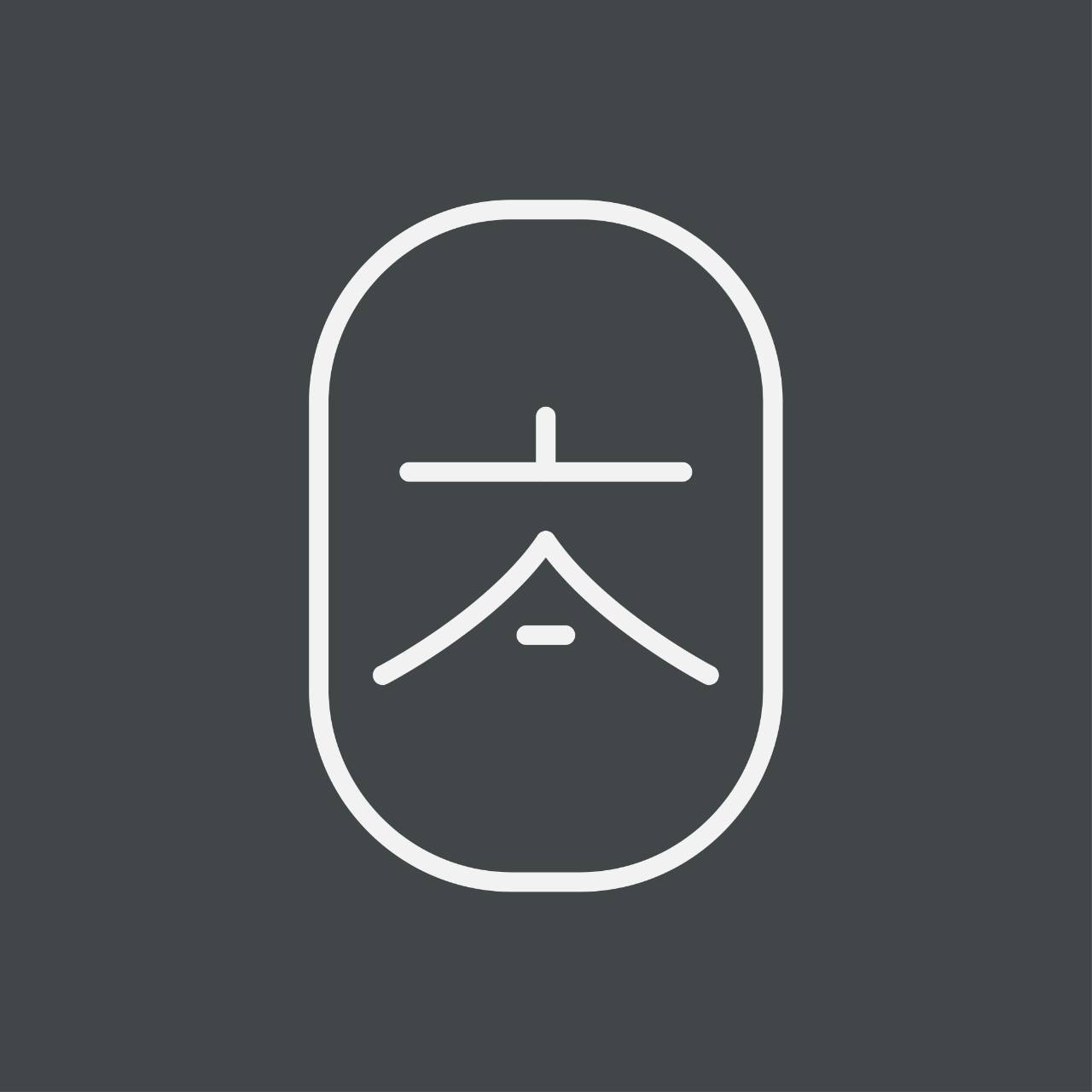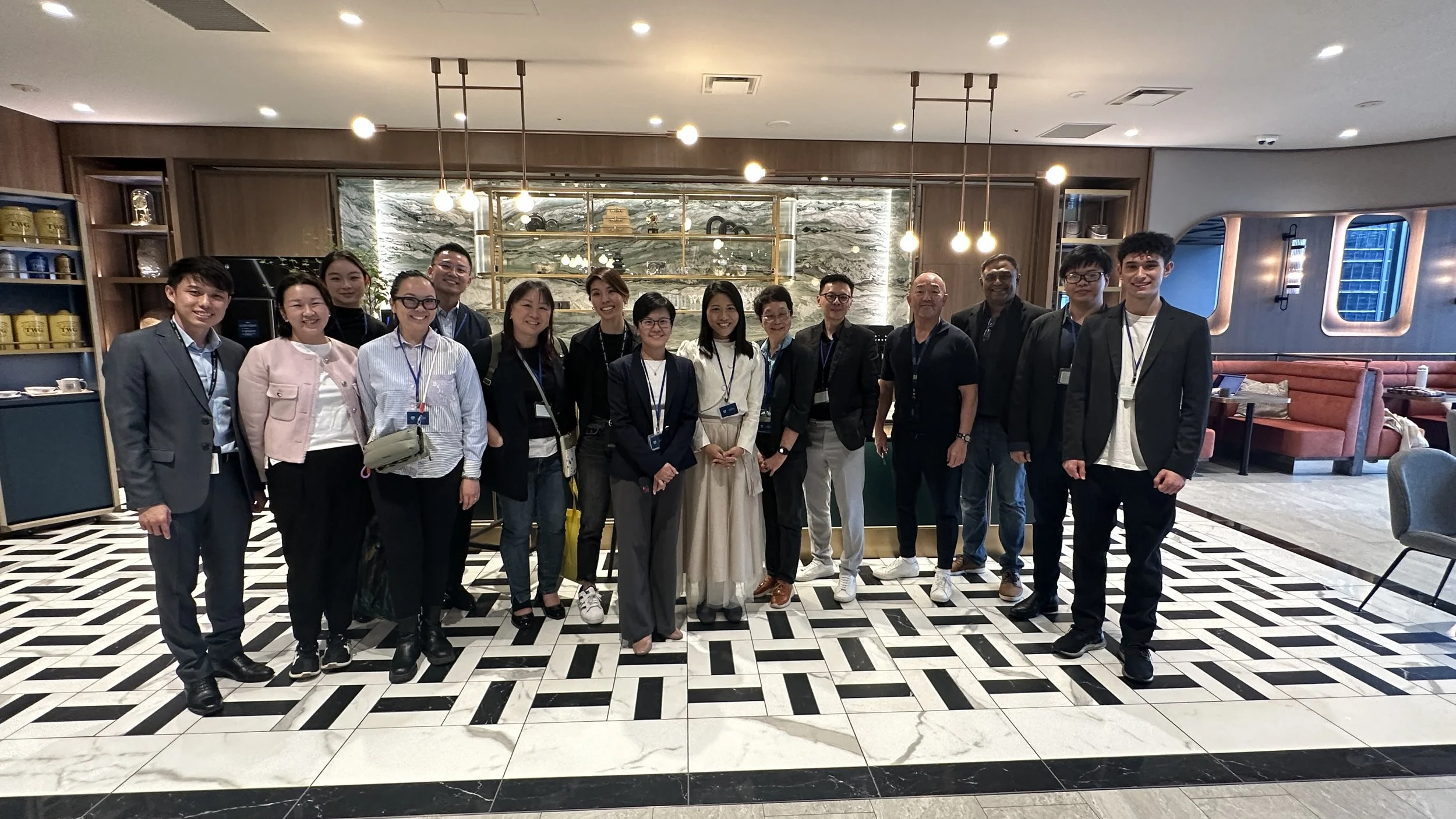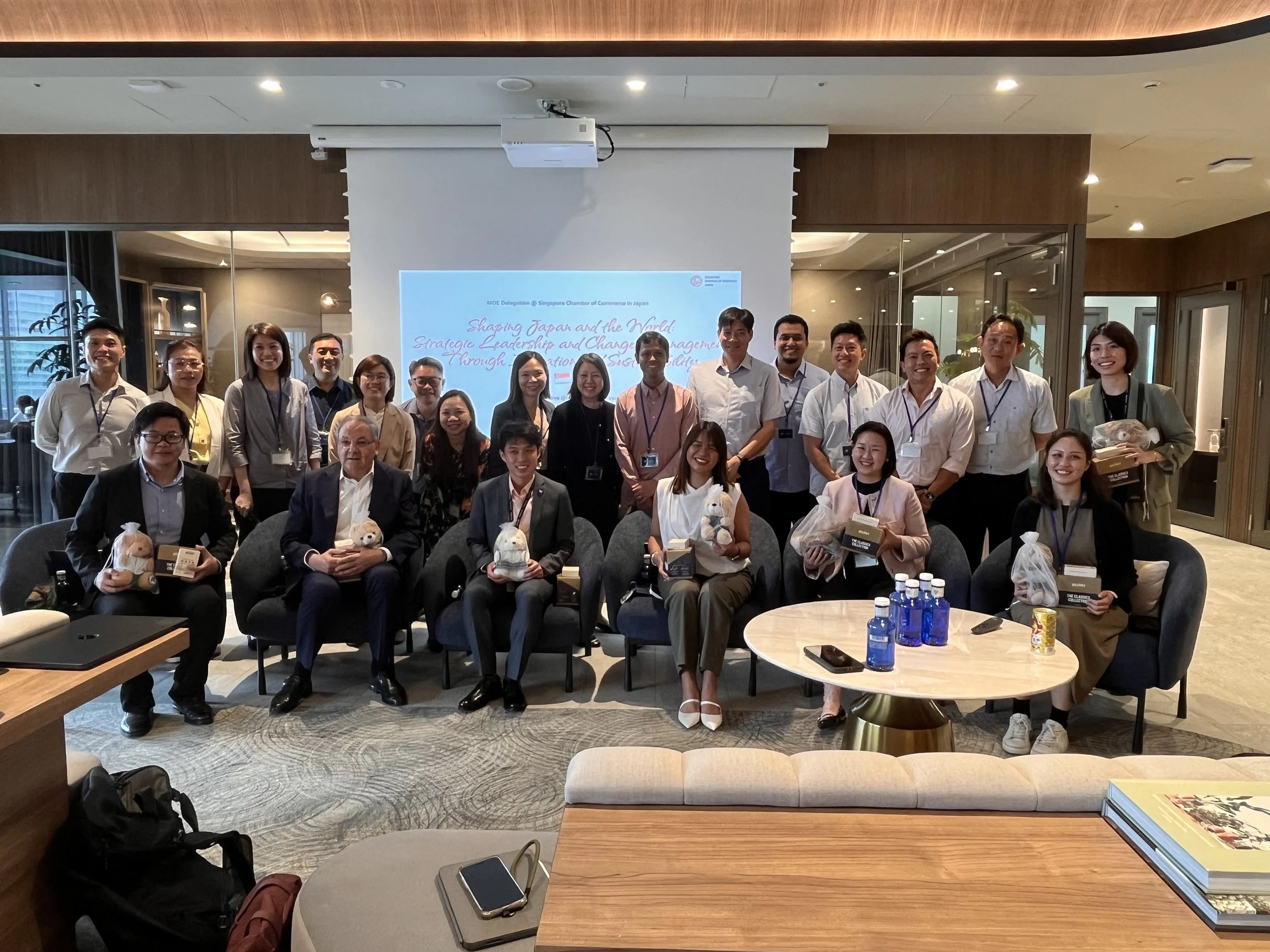TokudAw Speaks on Education and Cultural Innovation with Singapore MOE in Japan
TokudAw brings education to life through hands-on cultural programs in Japan
From Nagano rice fields to Tokyo university visits, TokudAw is redefining what educational travel can look like
Earlier this month, Wanping Aw, Managing Director of TokudAw Inc., was invited to speak at two private events hosted by SingCham Japan. The delegation, comprised of senior educators from Singapore’s Ministry of Education (MOE), was in Tokyo for their second learning journey—part of an ongoing initiative to explore how culture, education, and innovation intersect in Japan.
During the sessions, some topics touched on the deeper role education plays in shaping how people approach complexity, collaboration, and cultural difference. Wanping, who began her career in education before co-founding TokudAw, spoke about two key issues: how systemic thinking patterns in Japan are shaped by its education and corporate systems, and how nurturing resilience and curiosity from an early age can lead to more adaptive, globally minded leaders.
With Singapore’s Ministry of Education Delegation at The Collective @ GranTokyo South Tower on 19th May 2025 alongside fellow speakers: Allan Teng, CEO Workato JP; Oh Xue Min, CEO Minim; Evelyne Chua, President, Singapore Students Alumni Association in Japan (SSAJ); Wanping Aw, Founder and Managing Director of TokudAw Inc; organizer Lester Goh, COO and Co-Founder of AKIYA2.0 Inc and moderator Alicia Ang, Workato JP.
The roots of Tokudaw’s mission is education
Although TokudAw is known today as a bespoke travel service provider, its foundations are educational at heart. As Wanping shared with the delegation, “The whole purpose of TokudAw is to create cultural bridges. We want to help the world understand Japan—and help Japan stay open to the world.”
In fact, the company name itself is a symbol of that vision. ‘TokudAw’ combines the surnames of its founders—Tokuda and Aw—not just as a business label, but as a reflection of their cross-cultural partnership. Every journey they design, whether for tourists or international students, is an invitation to learn, reflect, and grow.
This philosophy is deeply personal for Wanping. With a background in biomedical science and university-level teaching, she’s seen firsthand how rigid thinking and cultural barriers can hold people back. “People often say Japanese workers are inflexible or slow to act in urgent situations,” she noted. “But it’s not about the individuals. It’s about the systems they’ve grown up in.”
With Singapore’s Ministry of Education Delegation at The Collective @ GranTokyo South Tower on 2nd June 2025 alongside fellow speakers: Christian R. Baudat, Representative Director of Ascott International Management Japan; Allan Teng, CEO Workato JP; Amanda Dizon, Regional Director Japan, EntepriseSG; Rimmel Choong, Eastern Asia Manager, SIA; Wanping Aw, Founder and Managing Director of TokudAw Inc; organizer Lester Goh, COO and Co-Founder of AKIYA2.0 Inc and moderator Alicia Ang, Workato JP.
Education as the catalyst for innovation
At the core of her talk was a simple idea: education can be redesigned to better prepare young people for a fast-changing world. Wanping pointed to several key shifts needed to unlock this potential:
Problem-solving from an early age – Inspired by mentors at institutions like Keio University, she advocates for early exposure to real-world problem-solving, rather than rote learning.
Resilience and risk-taking – Learners must be encouraged to make mistakes, take calculated risks, and develop emotional intelligence alongside academic skills.
Strengths-based growth – Instead of pushing everyone toward the same ideal, educators should help students understand their own strengths—and how to leverage them to make an impact.
“Self-awareness, acceptance, and adaptability aren’t just personal traits,” she said. “They’re the foundations for innovation. And when students learn those things in a global context, they’re more likely to develop ideas that respond to real-world issues—whether that’s designing inclusive technologies, rethinking sustainability in their own communities, or improving systems through cross-cultural insight.”
Turning philosophy into practice
TokudAw brings educational values to life through hands-on, community-led programs.
One such initiative is a service-learning rice planting program in Nagano Prefecture. Designed for international student groups, the experience combines environmental learning, physical activity, and social contribution. Participants spend a day planting and harvesting rice alongside local farmers. A portion of the crop is donated to refugee families in Japan.
“This experience involves showing students how local systems work, how food connects us, and how giving back can be built into travel,” explains Wanping.
The trip is part of a broader effort to design customized educational journeys that go beyond sightseeing. TokudAw’s educational trips often include:
School and university visits
Community-led workshops
Cross-cultural panels and student exchanges
Visits to key industries aligned with learning themes (e.g., robotics, medicine, hospitality)
Opportunities to reflect, journal, and debrief
The goal is always the same: help students see Japan not as a polished travel destination, but as a living, breathing culture—one that’s open to learning too.
Looking ahead to Osaka 2025
With the Osaka Expo 2025 fast approaching, Wanping also encouraged MOE educators to consider how Japan’s upcoming global event could serve as a springboard for learning. Several theme weeks at Expo 2025, such as ‘Learning and Education’, ‘Well Being’, and ‘Co-Creating Cultures’, align naturally with TokudAw’s trip-planning expertise.
For more on how TokudAw is preparing custom Expo-related experiences for educational groups and international organisations, see:
Everything you need to know about the Osaka Expo 2025
A message for educators and institutions
In her closing remarks, Wanping reflected on what it means to educate across borders. “Our mission is to help people become better versions of themselves by learning from each other. If we can build that into travel—into how people experience a new culture—then our offering goes beyond tours. We’re shaping global citizens.”
No matter if you’re an educator, policymaker, or simply someone passionate about rethinking learning, TokudAw’s programs deliver something different: space to connect, space to reflect, and space to grow.
For more on TokudAw’s educational journeys, visit here
Read more to find out Why Japan is the perfect destination for educational trips and service learning


